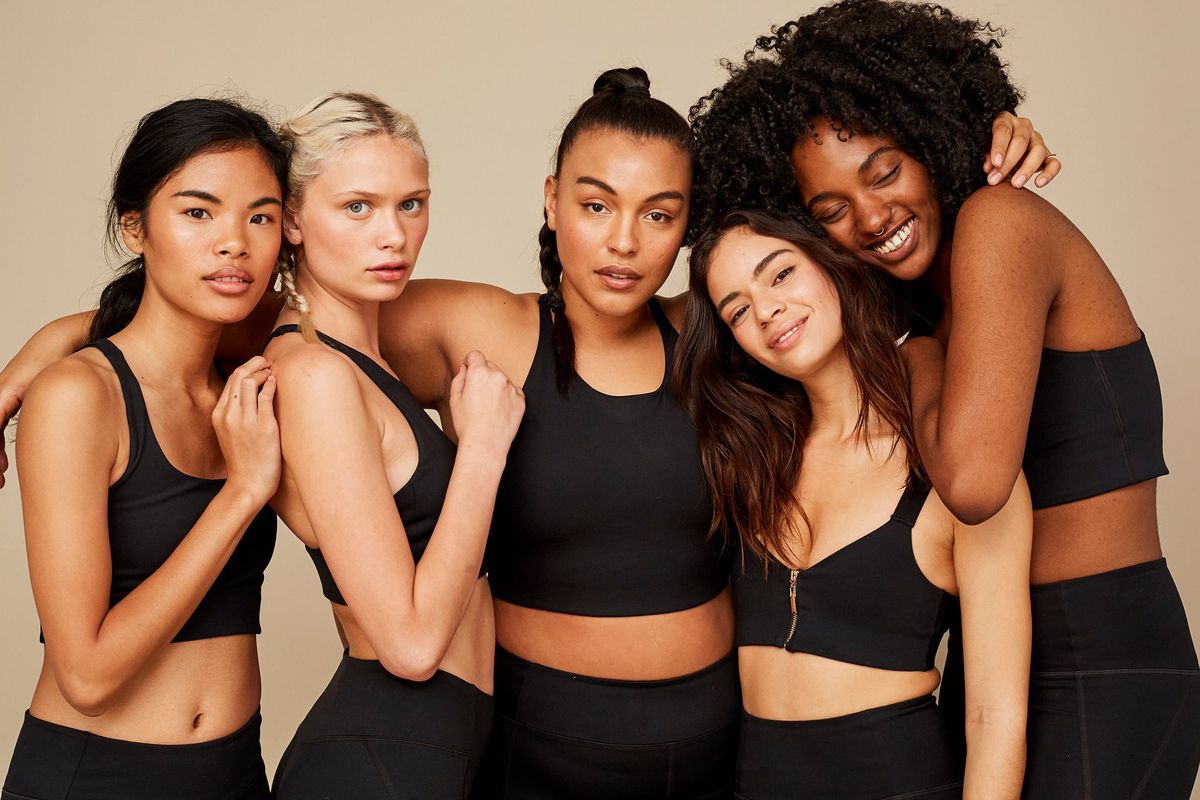5 Purpose-driven bands that are killing it (and what you can learn from them)

Back in 2015 Nielsen data showed that purpose was becoming a purchase driver. 69% of consumers were happy to pay more for organic products, 58% for environmentally-friendly products, and 56% for ethical products. Four years on, and this trend has exploded across the world. Younger brands in particular are making sure they form with purpose in mind from the very beginning. We’re going to take a look at five up-and-coming companies who are doing it particularly well.
Back in 2015 Nielsen data showed that purpose was becoming a purchase driver. 69% of consumers were happy to pay more for organic products, 58% for environmentally-friendly products, and 56% for ethical products. Four years on, and this trend has exploded across the world. Younger brands in particular are making sure they form with purpose in mind from the very beginning. We’re going to take a look at five up-and-coming companies who are doing it particularly well.
Advertising is mingling with politics and social justice (think Heineken’s “Open Your World” campaign, or Nike’s partnership with Colin Kaepernick); brands are being hassled to do better (Walker’s was persuaded by having non-recyclable crisp packets posted back to them); while fringe brands who prioritise ethics have gone mainstream (Oatly is taking on the dairy industry, and making serious waves).
Be it environmental or social, purpose is becoming a pragmatic part of business.
Increasing consumer concern over social issues is forcing change in various markets. Widespread participation in purpose-driven campaigns like Plastic Free July and Veganuary are good examples of where consumers, for a twelfth of the year will only spend money with brands actively helping them carry out a personal mission.
To a greater extent than ever before, brands are an extension of how we see ourselves (and how others see us). We’re encouraged to advocate for the brands we like via social posts, be it tweeting about great customer service or Instagramming a café we liked, which means incorporating them into our own personal brands. In this landscape, the ethics of a brand need to match up with those of their consumers, or they risk isolating people who aren’t happy endorsing a brand (both financially and anecdotally) that doesn’t support the same causes as them.
Of course, it’s not just for customers that brands are becoming more purpose-driven. Many startup brands now springing up are born out of a desire to do good (profit + purpose), and many of them are thriving!
Below we take a look at five brands that stemmed from people’s determination to make the world a little better, and what you could learn from their progress.
Girlfriend Collective: Get the word out authentically
When Girlfriend Collective launched, the nascent brand took a big gamble and gave out their first batches of stock for free. The promotion (which lasted several months) promised customers a pair of their now $68 leggings completely free of charge, all they had to pay for was delivery.
Ellie Dinh, the company’s co-founder explains the seemingly mad decision: “Instead of going the status quo and giving more money over to the advertising companies, we decided to spend that money giving leggings to our customers and asking them to spread the word for us.”
Their total belief in their product is clear: it’s well-made, sustainable, and ethical. They asked for no reassurance that the recipients of free leggings would leave a good review, they just hoped in good faith that if they liked what they saw, they would tell their friends.
“We know that if we can just get somebody into a pair of our leggings, and let them know and experience firsthand what we stand for — they’ll fall in love,” Dinh said of the idea.
The lesson here is twofold. Firstly, it’s a reminder to hold yourself to high standards: create a product that you’re so certain people will like that you can confidently execute a risky strategy like this with your budget. Secondly, it’s a shining example of what can happen when you get the word out in an authentic way. The campaign received great hype (Dinh reported that they received over 10,000 orders on the very first day of the promo) and the brand is thriving (they are now stocked by Reformation, who frequently sell out).
Oliberté Shoes: Examine your care circles
Oliberté make premium leather shoes from their factory in Ethiopia, which is the world’s first ever Fair Trade certified footwear factory. From the outset, they have been mindful of every area that their business touches.
The business was borne out of their strong belief that “with the right partners, each country within Africa has the means to grow and support its people.” They define their beliefs as “empowerment, transparency, and doing right by all,” and this extends to their entire business plan.
The way that Oliberté think of their product’s journey (as something created by employees; made from materials that affect our environment; and owned by customers) is a framework useful for every brand. They call it the three care circles:
This type of strategy gives your brand a great chance of creating real advocates. Both employees, and customers are likely to spread the word about why people should pay attention to your products, and in turn help with sales.
Purpose Jewelry: Maximise the benefits of your product
This small, artisan jewellery brand has purpose not only as their central tenet, but also as their name. Their range of necklaces, rings, earrings and bracelets all have multiple benefits. Beyond filling a need for the customer, and bringing in revenue, the jewellery creation process is a chance to educate and empower the women who make it.
All their jewellery is made by women escaping human trafficking, and the company’s ethos is built around giving these women back their freedom and humanity.
“From creation to shipping, young women escaping human trafficking are playing a critical role in every step of the process. They are able to earn a fair wage and gain employable skills. YOU are making all of this possible, and changing lives.”
The products bring in money, which goes to their non-profit International Sanctuary, and they also present an opportunity for vulnerable women to build skills and confidence, and gain fulfilment.
While this is a particularly noble example that most brands can’t hope to match, there is still a relevant lesson to be learnt. Examine your product again: can it provide a purpose beyond its ability to make you money? Is there a part of your supply chain that could be teaching people valuable skills, or a way that you could convert waste into something useful, for example?
Try to think about your process more holistically, and find a way for all aspects of your brand to contribute positively.
Who Gives A Crap: Make your purpose coherent with your brand
Who Gives A Crap is a cheekily named toilet paper manufacturer. It was started when three entrepreneurs were appalled by the fact that 40% of the global population don’t have access to a toilet, with 800 children under five dying every day from diarrhoeal diseases caused by poor sanitation.
After launching via a crowdfunding campaign, their business grew and grew. From these humble beginnings in 2013, they’ve maintained their central business model of donating 50% of all profits to building toilets in the developing world.
They’ve also got a conscience when it comes to the environment: their products are all eco-friendly, and they’re committed to saving trees, water and energy.
The lesson here is to keep things consistent. Purpose is on the up, and many businesses are being seen as trying to cash in on people’s growing sense of social duty. To ensure your commitment to CSR, and to make sure that your purposeful approach isn’t seen as a gimmick, make sure your charity work is in line with your brand.
Who Gives a Crap make toilet paper, and build toilets. It’s consistent and sincere; an excellent example of accomplishing brand purpose while still being able to create a sustainable business model.
Bombas: Give a little to gain a lot
Bombas is a sock company that grew out of the simple fact that socks are the number one most requested clothing item at homeless shelters.
“Bombas exists to help solve this problem, to support the homeless community, and to bring awareness to an under-publicized problem in the United States.”
The company’s policy is that for each pair of socks they sell, they donate a pair. What’s more, the socks that they donate are specifically designed with homelessness in mind. Rather than donating the same socks that they sell to consumers (who have the ability to regularly do washing, shower, and wear clean shoes), these special socks have an antimicrobial treatment so they don’t need regular washing and reinforced seams for added durability.
This strong sense of brand purpose—and the thoughtful way in which the company have seen this extend to the specifics of their product—is landing with consumers. Bombas have donated (and therefore sold) over 14 million pairs of socks.
If you invest in brand purpose and giving something back to the community, there’s much to be gained as a business because customers are likely to buy into your brand. It may also lead to more meaningful partnerships, and PR that’s more than just a stunt.
Conclusion
These five brands are pushing boundaries when it comes to creating a company that exists to help right a social or environmental wrong, and to succeed financially. The key to their success is that they truly are purpose driven. Their mission is not just a small part of their business, but something that shapes their product, manufacturing, materials, distribution, pricing strategy and business plan.
Not only is it likely to translate with increasingly purpose-focussed consumers, but it also means businesses can feel good about their place in the world.
If you’d like to become more purpose-driven, and need help figuring out what consumers care most about when it comes to making a difference, get in touch with us today to speak to them!
Tell us what you think of this article by leaving a comment on LinkedIn.
Or share it on:
